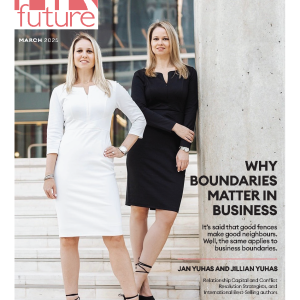For decades, a scientific approach to leadership has been the order of the day. You’ve probably heard the catch phrases, like “If you can’t measure it, you can’t manage it.”
This speaks of an approach that is based on rational thinking, which is essentially based on research, evidence and logic, an approach that has stood us in good stead as a species. But – and this is a significant but – while still valid, this approach is simply no longer enough in a world that has exponentially increased in complexity and uncertainty.
Making decisions based on research and evidence is a disciplined approach that bases decisions on data of some sort, hence the credibility of a scientific approach. Critics of non-scientific approaches will say that, when one strays from a scientific approach, one opens the door to a free-for-all approach where everyone’s opinion is their truth. And then rational thinking and logic fly out that open door.
But what does a leader do in the middle of uncertainty? Uncertainty is caused by one thing – a lack of data. And we simply don’t have the necessary data, information or knowledge to make an informed decision in today’s disruptive world. In the absence of data, therefore, you have no way of arriving at an evidence-based finding. What, then, are leaders to do to make strategic decisions in a low data environment?
They have to start relying on intuition.
Intuition refers to one’s judgement, instinct, insight or gut feel that is based on thousands of past experiences that one’s subconscious mind has stored and then extrapolates in order to arrive at a decision or course of action. That means one connects millions of dots that one has “collected” over the years of experience and makes a decision based on the conclusion one comes to in the absence of sufficient data on which to base a decision.
Intuitive decisions are not necessarily reckless decisions. On the contrary, experts use intuition to make decisions all the time to override rules that are in place but which may not serve any purpose in a prevailing situation. I’m not talking about ethical rules but rules that are in place simply to ensure certain procedures are followed.
So, as in a recent case, a life policyholder was shot and killed in a hijacking incident. The insurance company then rejected his widow’s claim because they said he had failed to declare that he suffered from a pre-existing medical condition – high blood sugar levels. The insurance company received such a backlash that, after first sticking to its guns, they finally did an about turn and paid out the policy. They initially claimed they had stuck to the rules, but the rules had caused them a lot of reputational damage. Should the case have been referred to an insightful expert, that expert may well have advised them to “break” the rule and pay out regardless of the facts, a decision that might have completely avoided the backlash they experienced. How much future business that cost them can never be calculated.
That’s why, in this complex, uncertain world, it’s time for intuitive leaders to take the stage. An intuitive and a scientific approach are not necessarily contradictory. An intuitive leader can certainly use a scientific approach where there is sufficient data available to make a decision. But they are equally able to make an intuitive decision in the absence of relevant data.
And what should a leader do when they’ve made an intuitive decision that was inappropriate? Acknowledge it and move on, safe in the knowledge that nobody else had more data on which to base a decision and might not necessarily have made a better decision.
Intuitive leaders are therefore more adventurous than scientific leaders. Case in point: in the absence of data, it is highly likely that a scientific leader will simply not make a decision while an intuitive leader will venture to make a decision that may well be a good decision or may not be. If the decision turns out to be the right one, well and good. If it doesn’t, the intuitive leader will probably make quick adjustments to compensate, and move forward. And that kind of leadership requires courage.
When it comes to leaders making decisions, which would you prefer? Would you rather have a leader who freezes in the absence of data or would you rather have a leader who uses his or her intuition to make a decision that they are prepared to adjust if need be?
If you went for the second option, chances are, the people you are leading would have too. Maybe it’s time to start trusting your intuition when faced with having to make decisions in the absence of data.
Alan Hosking is the Publisher of HR Future magazine, and @HRFuturemag. He is a recognised authority on leadership skills for the future and teaches experienced business leaders as well as millennial managers how to lead with empathy, integrity, purpose and agility. In 2018, he was named by US-based web site Disruptordaily.com as one of the “Top 25 Future of Work Influencers to Follow on Twitter“. In 2020, he was named one of the “Top 200 Global Power Thought Leaders to watch in 2021” by peopleHum in India.














































































